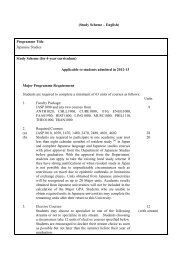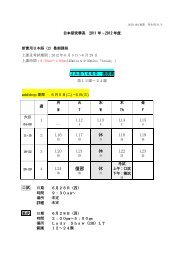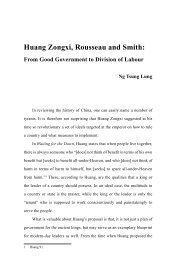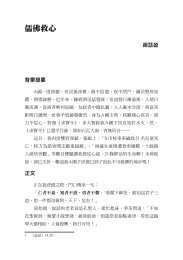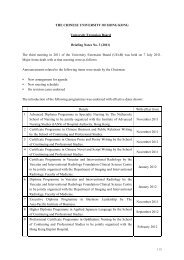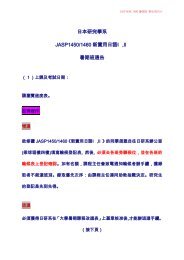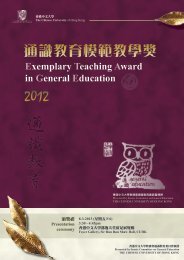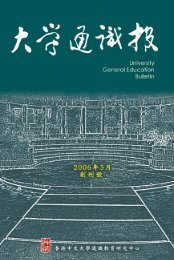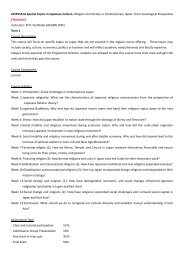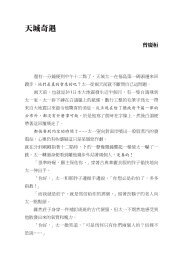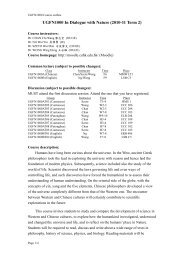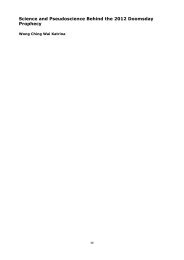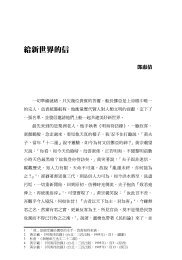ä¸è¼å ¨æ¸ - The Chinese University of Hong Kong
ä¸è¼å ¨æ¸ - The Chinese University of Hong Kong
ä¸è¼å ¨æ¸ - The Chinese University of Hong Kong
Create successful ePaper yourself
Turn your PDF publications into a flip-book with our unique Google optimized e-Paper software.
Susan Gano-Phillips, Affective Learning in General Education 33<br />
that the goal was not to teach “what” to think about ethical issues, but rather<br />
“how” to approach the process <strong>of</strong> thinking about ethical issues and, most<br />
importantly, “that” it is a worthwhile endeavor to think deeply about the ethical<br />
issues that we routinely confront. <strong>The</strong> student affective learning outcome that<br />
we agreed upon after much debate and discussion was that the “Students<br />
will be able to examine relationships between codes <strong>of</strong> ethics and individual<br />
ethical behavior,” and was written at the second level, “Responding,” in the<br />
taxonomy <strong>of</strong> Krathwohl et al. (1964).<br />
Teaching and Learning Activities (TLAs)<br />
We agreed upon a theory <strong>of</strong> ethical development (Rest, Bebeau, &<br />
Volker’s four-stage model, 1986) as the organizing framework for the course.<br />
To give the students opportunities to consider individual ethical behavior in<br />
light <strong>of</strong> the theory, we decided to host a series <strong>of</strong> public symposia (for faculty,<br />
students, staff, and our local community) on the topic <strong>of</strong> ethics in everyday<br />
life (supported by a small grant). Each symposium featured a keynote speaker<br />
as well as panelists who spoke on the following subjects: the Ethical Food<br />
Movement, Ethical Dilemmas in Business Practice, Poverty and the Ethics <strong>of</strong><br />
Social Service Delivery, and Ethical Challenges <strong>of</strong> 21 st Century Healthcare.<br />
Each symposium was preceded by a luncheon to encourage discussion among<br />
the diverse participants.<br />
<strong>The</strong> students were expected to consider and apply a particular stage <strong>of</strong> the<br />
ethical development theory to their analyses <strong>of</strong> the symposia events. Further,<br />
they were asked to take increasingly active roles at each symposium across<br />
the semester. By the final symposium, during the luncheon that preceded<br />
the symposium the students were facilitating small group discussions on



